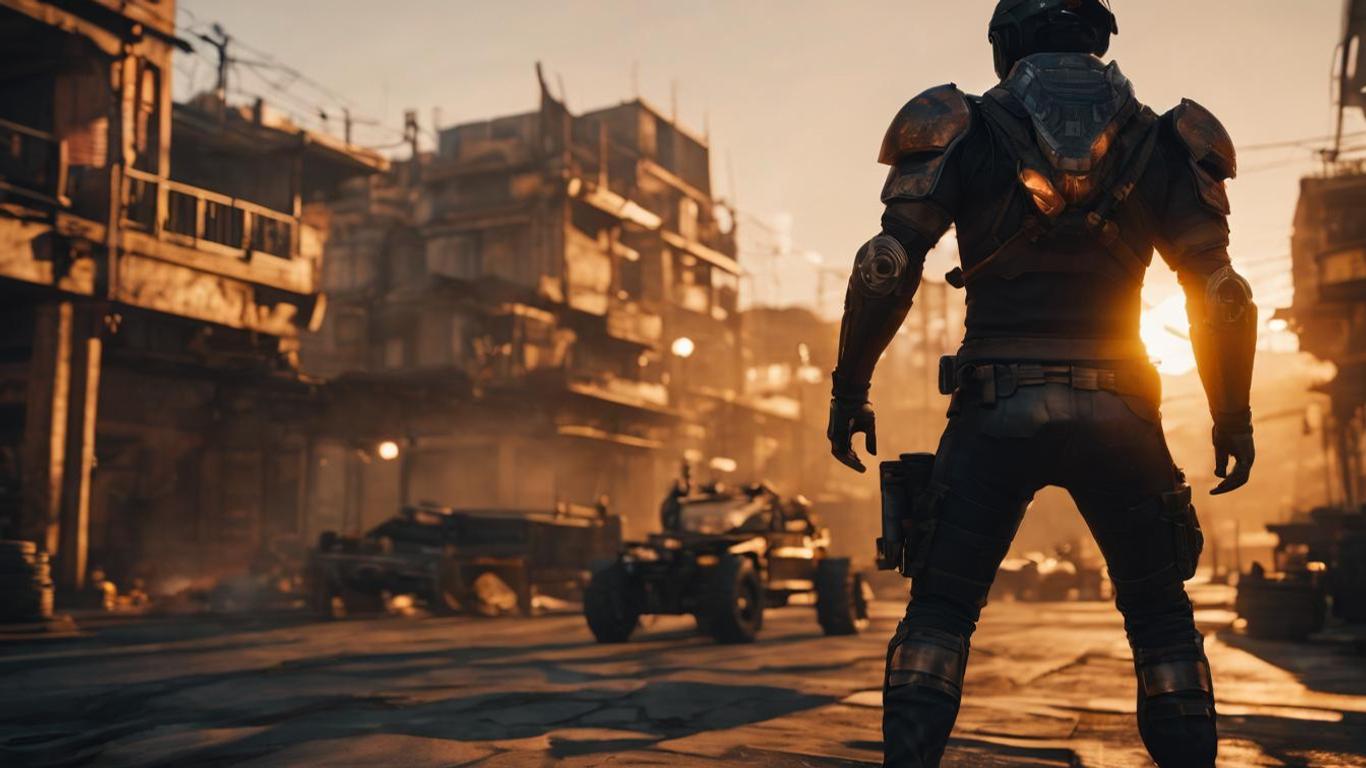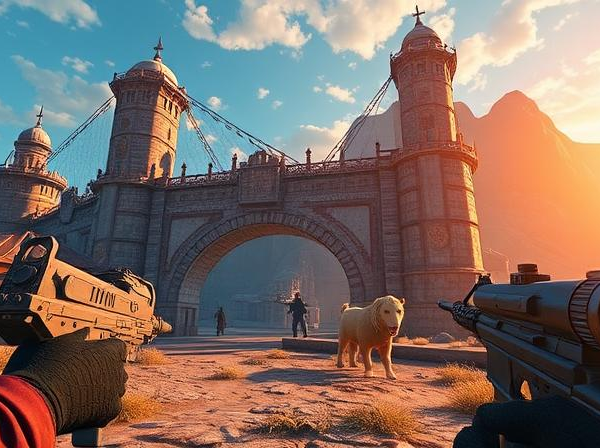How Can Action-Adventure Games Improve Problem-Solving Skills?
Enhancing cognitive abilities through gameplay
Our cognitive abilities, including memory, attention, and problem-solving skills, play a crucial role in our daily lives. While traditional methods of improving cognitive function have always been popular, a new avenue has emerged – gameplay. Engaging in various types of games can potentially enhance these cognitive abilities, allowing individuals to develop and strengthen their mental faculties.
One key aspect of gaming that can positively impact cognitive abilities is the need for quick thinking and decision-making. In many games, players are faced with challenging situations that require them to think on their feet and make split-second choices. This constant need for decision-making forces the brain to constantly analyze and process information in order to make effective choices. Over time, this can lead to improved decision-making skills and the ability to make better choices under pressure in real-life situations.
Developing critical thinking skills in challenging situations
One of the remarkable benefits of gameplay is its ability to develop critical thinking skills. In challenging situations, players are required to analyze complex problems and make informed decisions. They must evaluate multiple options, assess potential risks, and anticipate the consequences of their choices. These cognitive processes stimulate their critical thinking abilities, allowing them to consider various perspectives and develop logical reasoning skills. By engaging in gameplay that presents challenging scenarios, individuals can sharpen their analytical abilities and become better problem solvers in real-life situations.
In the realm of gameplay, individuals are often confronted with unexpected obstacles and time constraints, forcing them to think quickly and make informed decisions under pressure. This aspect of gameplay serves as an excellent platform for improving decision-making skills. By navigating through fast-paced environments, players learn to assess their options swiftly, weigh the pros and cons, and make effective choices with limited time available. This helps to develop their ability to think on their feet and make sound decisions even in high-stress situations outside the virtual world. As they continue to engage in gameplay that requires quick thinking, individuals enhance their decision-making skills and cultivate a valuable attribute in various aspects of their lives.
Improving decision-making skills under pressure
One of the key benefits of gameplay is the opportunity it provides for improving decision-making skills under pressure. Many games present players with challenging situations that require quick thinking and decisive action. Whether it’s a high-stakes battle or a time-sensitive puzzle, the pressure to make the right decision within a limited timeframe can be immense.
In these intense situations, players must analyze the available information, weigh the potential outcomes, and ultimately make a choice that will have a significant impact on the game’s progress. This constant practice of decision-making under pressure can help individuals in real-life situations where split-second decisions are often required. By honing their ability to think quickly and make sound choices, players can become more adept at handling stressful situations and making high-quality decisions under pressure.
Boosting problem-solving skills through complex puzzles and missions
When engaging in gameplay that involves complex puzzles and missions, individuals have the opportunity to enhance their problem-solving skills. These types of games often present players with intricate challenges and require them to think critically in order to progress. By actively problem-solving in a virtual environment, players gain valuable experience in analyzing information, reasoning logically, and finding creative solutions to difficult problems.
Complex puzzles and missions also provide a platform for individuals to develop their ability to think outside the box. In order to overcome these challenges, players are forced to explore alternative approaches and consider unique perspectives. This fosters creativity and encourages individuals to consider unconventional solutions to problems they encounter. Furthermore, the process of navigating through intricate missions and puzzles also promotes strategic planning and goal-oriented thinking. Players must strategically prioritize tasks, manage resources, and develop plans to successfully complete the mission or solve the puzzle. This level of strategic thinking helps individuals transfer these skills to real-life situations, enabling them to approach problems with a more systematic and goal-oriented mindset.
Enhancing creativity and thinking outside the box
Video games have long been a source of entertainment and enjoyment for people of all ages. However, beyond their recreational value, video games have also been found to enhance creativity and encourage thinking outside the box. By immersing players in engaging virtual worlds and presenting them with unique challenges, video games provide an opportunity for individuals to tap into their creative potential.
One way in which video games promote creativity is through their ability to spark imagination. Many games feature complex and intricate storylines, richly detailed environments, and diverse characters, all of which require players to use their imagination to fully appreciate and navigate the virtual world. Additionally, games often present players with open-ended situations and allow them to make choices that impact the outcome of the game. This freedom to explore and experiment encourages players to think creatively and consider unconventional solutions to problems they encounter along their virtual journey.
Furthermore, video games provide a platform for players to think outside the box by encouraging them to approach challenges from different perspectives. Whether it’s solving complex puzzles or devising strategic plans, video games often require players to think critically and find innovative solutions to overcome obstacles. In these virtual environments, players are given the freedom to experiment with various strategies and test the limits of their imagination. This process of trial and error not only enhances their creative thinking skills but also instills in them a willingness to take risks and explore new ideas.
Overall, video games have the potential to enhance creativity and foster thinking outside of conventional boundaries. By immersing players in captivating worlds, presenting them with unique challenges, and encouraging them to think outside the box, video games provide a valuable outlet for individuals to tap into their creative potential and develop their imaginative thinking skills. Whether it’s solving complex puzzles, exploring diverse virtual worlds, or engaging in strategic planning, video games offer a unique opportunity to nurture and cultivate creativity in a fun and interactive way.
Promoting strategic planning and goal-oriented thinking
Strategic planning and goal-oriented thinking are skills that are essential in both personal and professional life. Engaging in strategic planning exercises through gameplay can help individuals develop these skills effectively. By analyzing different scenarios and making calculated decisions to accomplish objectives within the game, players are able to train their minds to think strategically and set clear goals. This not only enhances their problem-solving abilities, but also sharpens their focus and determination to achieve desired outcomes.
Furthermore, games that require strategic planning and goal-oriented thinking often immerse players in complex and dynamic virtual worlds. This challenges them to evaluate the current situation, anticipate future events, and develop effective strategies accordingly. As players adapt their plans based on changing circumstances, they learn how to prioritize their actions and allocate resources efficiently. These experiences in gameplay significantly improve their ability to identify and pursue the most favorable paths towards achieving their objectives, both within the game and in real-life situations.
Fostering teamwork and collaboration in multiplayer games
Multiplayer games have become increasingly popular in recent years, providing an avenue for individuals to engage in cooperative play with others from around the globe. This interaction necessitates teamwork and collaboration, as players must work together towards a common goal. Through the shared experience of navigating virtual worlds, players develop collaborative skills that can be transferable to real-life situations.
In multiplayer games, effective communication is key to success. Players must constantly exchange information, coordinate strategies, and make split-second decisions in order to outmaneuver opponents or achieve objectives. This constant interaction fosters teamwork and collaboration, as individuals must rely on one another and trust in their abilities to accomplish shared goals. By working together, players learn to delegate tasks, synchronize actions, and adapt to the strengths and weaknesses of their teammates, enhancing their overall collaborative capabilities.
Improving adaptability and quick thinking in dynamic environments
In dynamic environments, where situations can swiftly change and unpredictable challenges arise, the ability to adapt and think quickly is of utmost importance. This skill can be honed through engaging in gameplay that puts players in ever-changing scenarios, forcing them to adjust their strategies on the fly. By exposing individuals to these dynamic environments, video games, for instance, can present a platform where adaptability and quick thinking are constantly put to the test.
In these dynamic settings, players must learn to make split-second decisions, weighing the pros and cons of their actions, and anticipating the potential consequences. Such scenarios demand individuals to think on their feet and come up with creative solutions, as time is of the essence. As players navigate through the challenges presented by the game, they develop the ability to rapidly adapt their strategies, adjust their goals, and make quick decisions in order to stay ahead. These experiences enhance their overall adaptability in real-life situations that call for quick thinking and flexibility.
Enhancing attention to detail and observation skills
Attention to detail and observation skills are essential for success in various aspects of life. Whether it is in professional settings or personal endeavors, being able to notice the finer details and observe the world around us can greatly benefit us. One way to enhance these skills is through engaging in activities that require us to pay close attention to our surroundings. For example, playing puzzle games or participating in detective-style missions can train our minds to be more observant and meticulous. By carefully examining clues, analyzing patterns, and noticing subtle changes, we can develop a keener eye for detail and sharpen our observation skills.
In addition to games, everyday activities can also serve as opportunities to enhance attention to detail and observation skills. For instance, while reading a book, paying attention to the author’s use of language and descriptions can help us notice deeper meanings and visualize the narrative more vividly. Similarly, when taking a walk outdoors, consciously observing the colors, shapes, and movements in our surroundings can train us to be more perceptive and attentive to the world around us. By regularly engaging in activities that require us to focus on the specifics, we can cultivate our ability to notice even the smallest details and become more observant individuals.
Transferring problem-solving skills from virtual to real-life situations.
One of the remarkable benefits of engaging in virtual gaming is the potential to transfer problem-solving skills to real-life situations. Through the challenges and complexities presented in virtual games, players are required to think critically and find effective solutions to overcome obstacles. This process promotes the development of problem-solving strategies that can be translated and applied in various real-life scenarios.
The skills acquired through virtual gaming, such as logic, reasoning, and adaptability, can be readily transferred to real-life situations. For instance, individuals who excel at puzzle-solving in virtual games often exhibit enhanced problem-solving abilities when faced with complex challenges in their personal or professional lives. The cognitive abilities honed in the virtual realm, such as pattern recognition and analytical thinking, allow players to approach real-life problems with a fresh perspective, enabling them to devise innovative solutions and make well-informed decisions.











